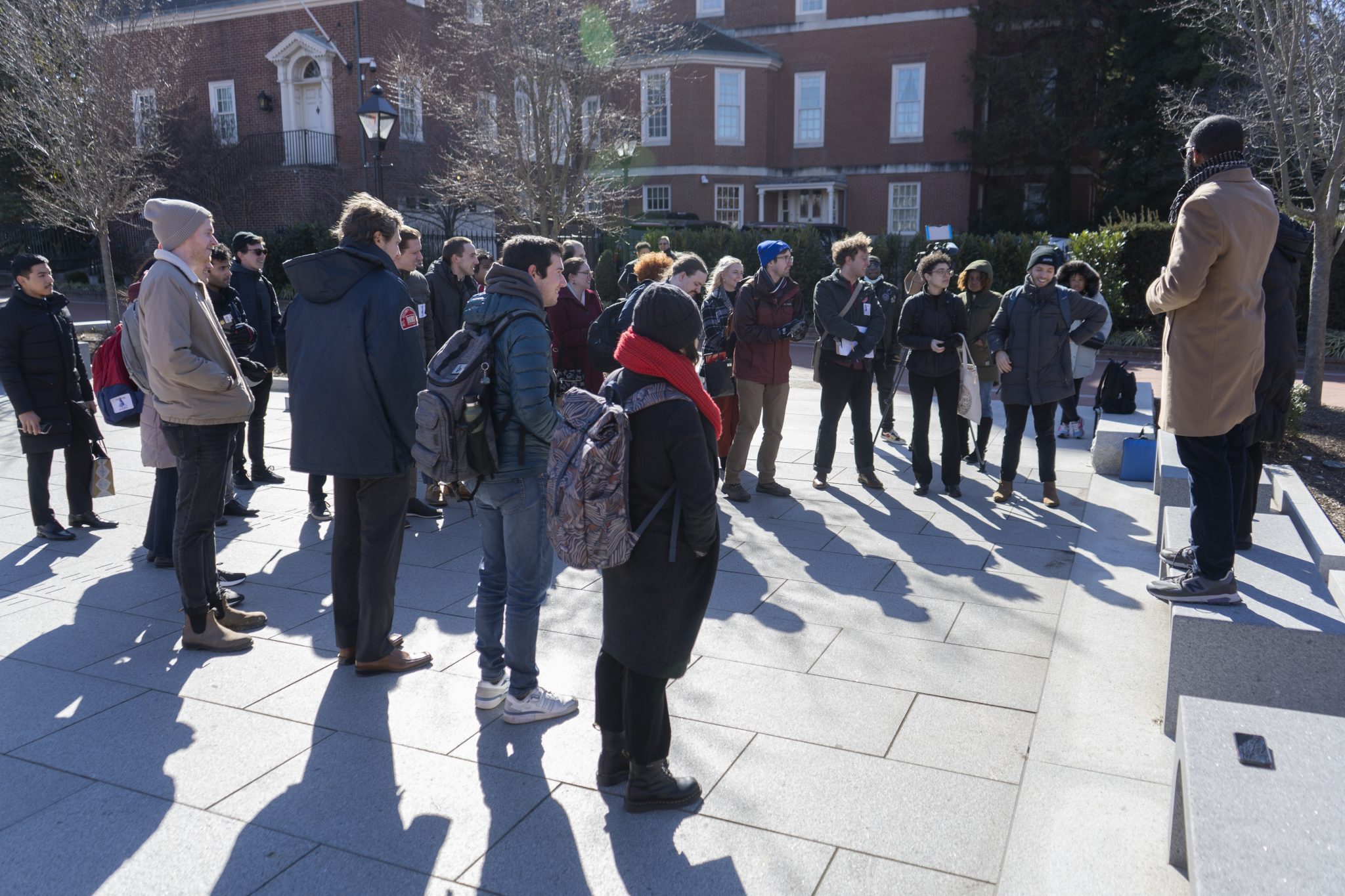“Ain’t no power like the power of the people, because the power of the people don’t stop,” a crowd of about 50 University of Maryland graduate students chanted Monday outside the Town Center Market in Riverdale Park.
The crowd was celebrating the launch of this university’s Graduate Labor Union’s public campaign for graduate worker unionization. The group, formerly known as Fearless Student Employees, is continuing a yearslong push from graduate student employees to secure collective bargaining rights, which would allow workers to negotiate wages, hours and other conditions.
The campaign aims to convince a majority of graduate workers at this university to sign union cards, which would allow the union to be recognized if state legislators grant graduate workers the right to collective organizing. The GLU is an official United Auto Workers campaign, one of the largest unions in the country representing just under 100,000 higher education workers.
Several attempts to repeal the ban on graduate worker collective bargaining in the Maryland General Assembly have failed to pass the Senate in previous years, but graduate workers and GLU organizers emphasized the movement’s momentum.
“We’re hoping that if we get enough card signs, we’ll have enough momentum to really say, ‘Hey, we’re here, we mean business,’” said GLU organizer and history and library and information science graduate students Rigby Philips. “That will show the administration that [it] can’t keep lobbying the state legislature to keep overturning this.”
[UMD employees union rallies for consolidated collective bargaining, more Spanish accessibility]
More than half of this university’s graduate workers — approximately 2,200 people — must sign a union card for the GLU to have a majority, according to Philips.
She said around 200 graduate workers, approximately 90 percent of all departments at this university, have agreed to spread the word about unionization in their departments and get other graduate workers to sign union cards.
“I think that there’s a lot of potential for flipping the scenario and flipping the outcome,” computer science doctoral student Phil Pope said. “It’s been a very difficult struggle in recent years, and so given all the momentum that’s going on, we might have more of a chance this year.”
The crowd also advocated for improving work conditions for graduate students, including increased pay and better accommodations for students with disabilities.
For clinical psychology doctoral student Jess Abramson, who has a chronic illness, access to health insurance and health resources is especially important.
“I can’t get away with not being able to get the resources I need and being able to afford them,” Abramson said. “I think having a union will put us in a better position to be able to advocate for those things.”
In a statement to The Diamondback, this university said it has worked collaboratively with graduate student leaders to tackle various issues.
The minimum stipends for graduate assistants have increased by 39 percent since fall 2021 and by 67 percent across the last six years, this university said. The university also emphasized this university’s commitment to construction of graduate student housing and increased investment into fellowships for graduate students.
“We have made strides in improving the graduate student experience,” the statement read.
[College Park residents to vote on four-year terms in November election]
Members of this university’s administration have testified against past attempts to grant graduate students collective bargaining rights before the Maryland state legislature.
But some faculty members supported those attempts and said they will continue to do so this year. Seventeen faculty members signed a letter in support of the GLU and graduate workers’ right to collective bargaining.
History professor Karin Rosemblatt, who signed the letter, said at Monday’s campaign launch the move has broad faculty support. Rosemblatt is the vice president for this university’s chapter of the American Association of University Professors.
Faculty have also spoken out in support of their own unionization rights. The failed 2023 state bill for graduate collective bargaining rights would have extended collective bargaining rights to tenure-track, non-tenure track and part-time faculty.
Environmental health sciences doctoral student Jan-Michael Archer — former president of the GLU — emphasized the importance of engaging a diverse group of graduate students in the GLU’s organizing process.
“Even if this whole system was entirely equitable, there will still be racially-based and class-based hierarchies,” Archer said. “From an organizing perspective, we need to do more to actually reach out to those communities at the university level, and say, ‘Hey, what’s going on.’”
CORRECTION: A previous version of this story’s photo caption misspelled Jan-Michael Archer’s name. This story’s caption has been updated.



